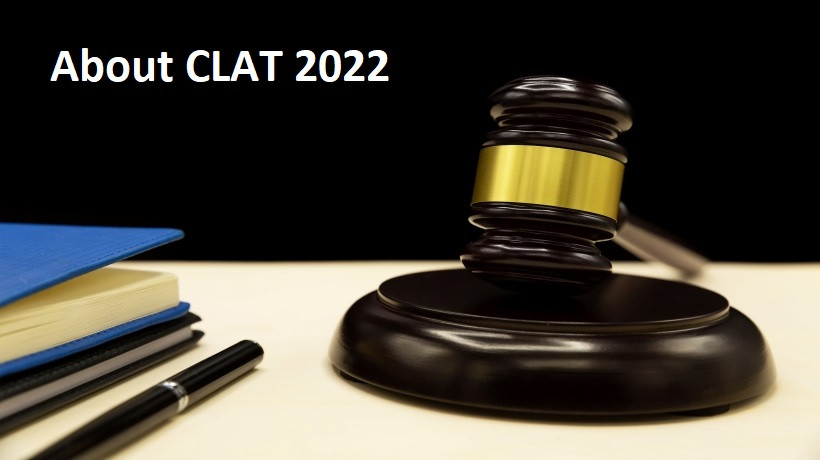All about CLAT 2022
If you are planning to be a Lawyer, then the Common Law Admission Test (CLAT) is the gateway that will help you sit in the best learning space of Legal education. In this Blog you’ll find all about CLAT 2022.
February 11, 2022
Career & Coaching Expert

The Common Law Admission Test (CLAT) is an entrance exam conducted at the national level which helps aspirants take up admissions for their undergraduate or postgraduate law courses in the government institutions like the National Law University. Along with this, there are other colleges and universities which accept CLAT score as a criterion for admissions.
The CLAT exam is for 22 NLUs, NMIMS, Nirma University, IP University and UPES.
CLAT 2022 Notification
The CLAT Consortium has released the online application form of CLAT on January 1, 2022. The application is available at consortiumofnlus.ac.in. The application is getting closed on March 31st, 2022. To fill the form, candidates will have to get registered, fill in personal, academic, and contact details, and pay the fee.
CLAT 2022 Exam Date
| Events | Dates |
| Release of Online Application Form | January 1, 2022 |
| Last date of Application Form | March 31, 2022 |
| Admit Card Release Date | April 2022 |
| Exam Date | May 8, 2022 |
| Expected Result Date | May 24-25, 2022 (Tentative) |
| Programs | B.A LL.B/BBA LL.B/B. Com LL.B |
CLAT 2022 Eligibility Criteria
The Consortium of NLUs has prescribed the eligibility criteria for both CLAT UG and CLAT PG.
-
Minimum age: It should be 20 years of age as of July 1, 2022 and there is no maximum age limit.
-
Aggregate Percentage / Marks Required: An LL.B Degree or an equivalent examination with a minimum of Fifty percent (50%) of marks or its equivalent grade in case of candidates belonging to General/OBC/PWD/NRI/PIO/OCI categories
-
Cut-Offs: It will differ because the total marks in 2021 are 150, whereas in the previous year it was 200.
CLAT 2022 Syllabus
CLAT 2022 shall be conducted in offline mode where the paper will have 150 questions from five different subjects including English (Comprehension), General Knowledge & Current Affairs, Elementary Mathematics (Numerical Ability), Legal Aptitude and Logical Reasoning. Scope and coverage of questions under different subject areas:
The English language English section will test the candidates' proficiency in English based on comprehension passages. Students will be given passages of about 450 words each and such passages could be fiction/ non-fiction, contemporary/historical, etc. Candidates will be questioned on their understanding of the passage and its central theme, meanings of words used therein, etc. The inference would be key here, candidates will have to comprehend the main idea discussed in the passage including any counter-arguments used in the passage.
Current Affairs including General Knowledge: This section would again consist of passages instead of direct questions that were asked earlier. The passages would again be of 450 words each and the same would be derived from news, journals, etc. Questions based on such passages would be asked. Such a question can cover static portions as well, candidates are therefore advised not to forgo the static portion entirely. Reading Newspapers daily, specifically, articles containing any Bill or Judgments or legal information should help in preparing for this section.
Quantitative Aptitude: The Quantitative Technique or Math section will include short sets of facts or propositions, graphs, or other textual, pictorial or diagrammatic representations of numerical information, followed by a series of questions. The questions will be in the form of Data Interpretation i.e. candidates would be required to infer information from the given passage and answer accordingly.
Legal Reasoning: This section will test the candidate's interest in the study of law, research aptitude, and problem-solving ability. Questions would again be based on passages relating to facts or scenarios involving legal matters. The passage would contain certain rules and principles which should be identified and accordingly applied to the questions. The passages would be approximately 450 words each.
Logical Reasoning: The purpose of the logical reasoning section is to test the candidate's ability to identify patterns, logical links, and rectify illogical arguments. The questions would be based on the passage of 300 words.
CLAT 2022 Seat Matrix

